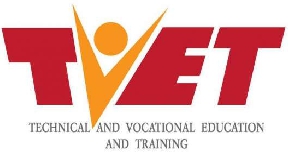The National Technical Vocational Education and Training (TVET) Advocacy Team has called on government to ensure that free TVET covers all public TVET institutions under the various sector ministries and not only the 48 under the Ministry of Education (MoE).
There are over 300 TVET institutions in Ghana, however only 48 are under the Education Ministry, the rest are scattered under various sector ministries including the Ministry of Employment and Labour Relations, Ministry of Trade and Industry, Ministry of Local Government and many others.
In a statement issued at the end of a National Stakeholders Forum on TVET and copied to the GNA, the team called on government to recognise the importance of TVET and provide the “needed tools, equipment and infrastructure to enhance delivery”.
The Forum was attended by stakeholders from the formal and informal sectors and public and private institutions from the 16 Regions of Ghana to discuss matters bordering on TVET.
It was on the theme “Building a Solid Foundation for TVET in Ghana” and was organised by the National TVET Advocacy Team instituted by the Vocational Training for Females (VTF).
It is made up of eminent members of the academia and industry in collaboration with the Network on Technical and Vocational Education Training (NETTVET).
The statement also called on government to deepen the consultation on the pre-tertiary Education Bill and the Education Regulators Bill 2019, particularly TVET stakeholders including; those in the informal sector as well as develop a campaign to correct the negative perceptions about TVET to make it attractive to parents and youth.
They also called for tax rebate policies for companies that take trainees on internships and on the Civil Society Organisations (CSOs) to advocate and create awareness on TVET and its importance in economic transformation to support government agenda.
The statement said “although governments over the years appreciated the role of TVET in National development and introduced policies to enhance its delivery, the sector remained heavily challenged making it difficult for the full potential of TVET in transforming the economy through jobs creation to be realised”
The statement mentioned some of the policies and interventions as the establishment of the Council for Technical and Vocational Education Training (COTVET) in 2007, the National TVET Qualification Framework, the Competency-Based Training (CBT) and the Skills Development Fund (SDF).
It also mentioned other initiatives such as the five- year TVET strategic plan (2018-2022), the pending Education Bill and Education Regulators Bill seeking to realign all TVET providers under TVET service at the MoE.
The statement mentioned for example the high cost of accreditation of TVET institutions and inadequate infrastructure required for the CBT as some of the operational challenges and expressed the hope that government and all stakeholders would take notice of the issues raised and act accordingly.
General News of Wednesday, 9 October 2019
Source: ghananewsagency.org
Ensure that free TVET covers all public institutions - National Stakeholders Forum on TVET
Entertainment
















